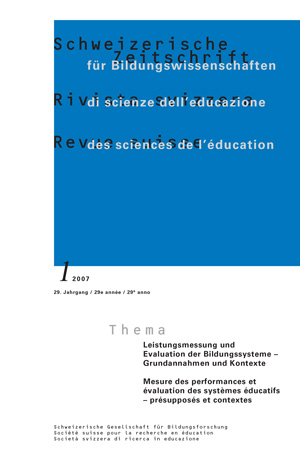Effects of Implicit Norms on Quality Assessment – a Methodological Challenge
DOI:
https://doi.org/10.24452/sjer.29.1.4762Keywords:
Quality assessment, methods of performance assessments, implicit norms, educational policy, efficacy of quality assessments, evaluation of edu-cational systemAbstract
The article focuses on the normative conflict between quality and assessment at the basis of measures of political-educational control and methodological demands of performance. In its current accentuation, the quality of the educational system assumes the function of an extremely important prescriptive category, both for the teaching sector and for single scholastic institutions. As a specific and programmatic category, quality rests on a normative basis which, at first, is not explicated at the general conceptual level and regards the concepts of quality. The example of the national project „certification of schools for vocational training“ shows, how poor understanding of the quality concept inevitably leads to quite unspecific performance assessments, as they are controlled by implicit and immanent factors at the contextual level and thus can only provide notions of scant relevance about the most intrinsic dynamics and possible solutions.
Downloads
Downloads
Published
Issue
Section
License
Copyright (c) 2007 Désirée Donzallaz

This work is licensed under a Creative Commons Attribution 4.0 International License.



